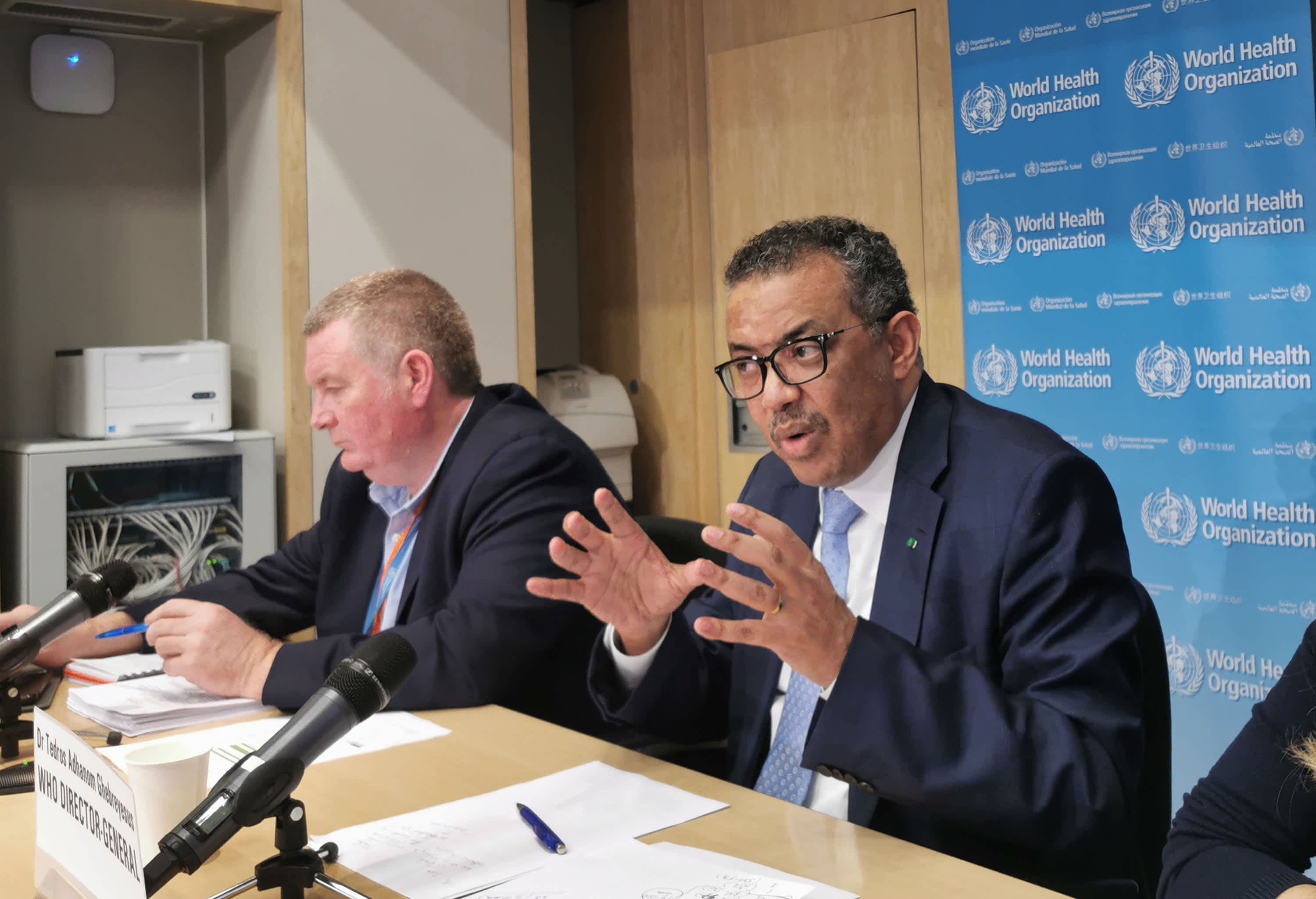World Health Organization Director-General Tedros Adhanom Ghebreyesus R speaks at a daily briefing in Geneva, Switzerland.
Chen Junxia | Xinhua News Agency | Getty Images
World Health Organization officials on Friday warned that recent data suggests that, though it is rare, people who were once infected with the coronavirus could be infected again as their antibody response wanes.
“We have seen the number of people infected continue to grow, but we’re also seeing data emerge that protection may not be lifelong, and therefore we may see reinfections begin to occur,” Dr. Mike Ryan, executive director of the WHO’s health emergencies program, said during a press briefing at the organization’s Geneva headquarters. “So the question is: What are the levels of protection in society?”
Reinfection means that a person was infected with the virus, recovered and then later became infected again, according to the U.S. Centers for Disease Control and Prevention. Based on the CDC’s experience with other viruses, Covid-19 reinfections are expected, the agency said.
However, researchers are trying to determine how likely and how often reinfection occurs, among other considerations, such as how severe reinfection might be and how soon it can occur after the first infection.
Maria Van Kerkhove, head of the WHO’s emerging diseases and zoonosis unit, said that researchers are still trying to determine how long an antibody response lasts after someone is infected with the virus.
“What we understand is 90[%] to 100% of people who are infected with the coronavirus do develop an antibody response, whether you have mild infection, asymptomatic infection, all the way to severe infection,” she said.
Ongoing research indicates an immune response may last for six months or longer, she said. In a recent Oxford study, researchers found that people who have contracted the coronavirus are “highly unlikely” to contract the disease again for at least six months.
The study, conducted between April and November with 12,180 health-care workers employed at Oxford University Hospitals, found that 89 of 11,052 staff without antibodies developed a new infection with symptoms. None of the 1,246 staff with antibodies developed a symptomatic infection.
“In some people, it may wane after a few months, but we do get a good indication that natural infection immune response is lasting for some months,” Van Kerkhove said. “We’re about a year into this pandemic, and so we still have a lot to learn.”
In late August, researchers in Hong Kong reported what appeared to be the first confirmed case of Covid reinfection after a 33-year-old man who was first infected with the virus in late March appeared to contract the virus again more than four months later, STAT News reported. The WHO acknowledged at the time that, though rare, reinfection could be possible.
“It doesn’t mean that it’s happening a lot; we know that it’s possible,” Van Kerkhove said during a live Q&A session on Aug. 26.
— CNBC’s Sam Meredith contributed to this report.
